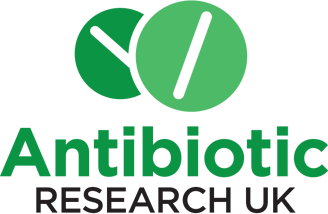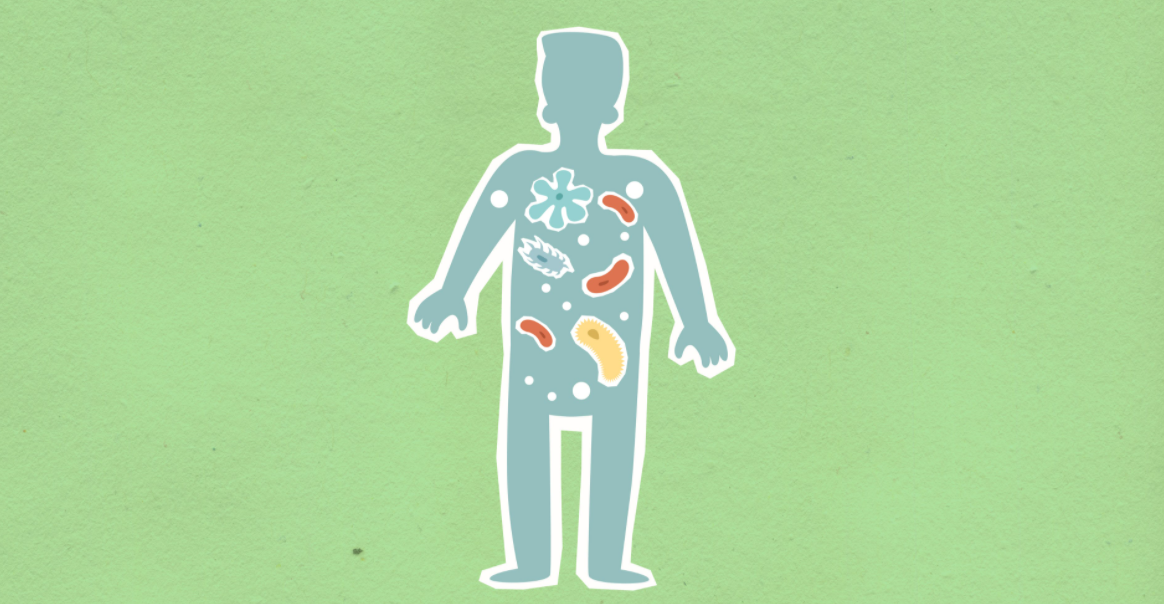Did you know there are as many bacterial cells in the human body as there are human cells? These bacteria are essential to life and good health. They are also of increasing interest to scientists and doctors investigating causes of ill health. This blog provides a simple summary of some of the latest and most interesting research in the field of gut bacteria and human health.
What is gut bacteria?
Gut health includes the health of the digestive system and the good bacteria that live there. This ‘microbiome’, ideally, is a well-balanced mixture of different types of bacteria. The mix will vary from person to person and depends on factors such as gender, medication, diet and health status.
There are many types of bacteria that can live in our gut. Most are part of the Firmicutes and Bacteroidetes phyla (an overarching group of species). Approximately one-third of all these gut bacteria species are common across most humans. While that is a lot to have in common, it also leaves plenty of room for variation between individuals.
Gut bacteria and health
Increasingly, research shows that our gut bacteria are important for our overall health. For example, this study demonstrated that a healthy Mediterranean style diet is associated with a certain balance of gut bacteria. It also found that the positive effects of such a diet, such as reductions in cardiometabolic diseases (such as cardiovascular disease and diabetes), vary depending on that balance. Could the health benefits of a Mediterranean diet be due to its impact on the bacteria in our gut?
One review explores how the microbiome supports the immune system. The academics suggest that changes such as the use of antibiotics, richer diets and the reduction of parasites may have led to a change in the balance of bacteria. They suggest that this could be behind the increase in autoimmune disorders in high-income countries.
Research has also demonstrated that – as you get older – the more unique your microbiome is, the longer (and healthier) you live.
Antibiotics and their impact on gut bacteria
When a person has an infection that is caused by bacteria, the body’s immune system can often fight it off itself. If that doesn’t happen, a doctor might give them antibiotics, a type of medicine that kills bacteria. Unfortunately, these medicines can kill good bacteria, too. This can lead to a poor balance in the gut microbiome, such as not enough of one type of bacteria, or the wrong types colonising after treatment ends.
In some patients, after antibiotic treatment, a species called Clostridium difficile or C. diff becomes the main species present. This leads to sickness, diarrhoea and in extreme cases sepsis and death. Ironically, further antibiotics are required to treat the C. diff infection.
Dysbiosis
Dysbiosis is a lack of balance in the bacterial microbiome. Plus, it is not always antibiotics that cause it. Here’s what recent research tells us about dysbiosis:
- Parkinson’s disease may begin with a build up of a type of long fibre (α‐synuclein fibrils) in the digestive system, which can be caused by gut dysbiosis.
- Antibiotic-related dysbiosis is correlated with obesity, and particularly in young children.
- A study that transplanted microbiome samples from depressed humans into rats with a reduced microbiome of their own saw the rats develop depressed behaviour.
- Dysbiosis caused by total/almost total loss of gut bacteria increases the risk of infection with harmful microbes. This could be Salmonella or Escherichia coli in the gut, but could include viral infections such as types of influenzae, which affect the lungs. The research linked, however, does state that it is not clear if this includes coronaviruses.
- Dysbiosis is associated with the development of colorectal cancer. The microbiome of people with a certain type of this cancer also predicted how well they would respond to chemoradiotherapy in a study.
- Evidence suggests that gut dysbiosis might be involved in the demineralisation of the bones and mineralisation of the veins and arteries (both bad things!) that often occur in people with chronic kidney disease.
- Studies are starting to show that treating gut microbiome dysbiosis can have a positive effect on people with depression.
What if you have to take antibiotics?
Antibiotics are often the only treatment for stubborn or serious infections, so the benefit of using them outweighs the risks. If you do need antibiotics, there are some dietary and lifestyle adjustments that can help your microbiome to recover.
- Ensure there is enough fibre in your diet (and supplement with non-digestible carbohydrates)
- Supplement your diet with probiotics and/or prebiotics
Researchers are also now exploring how we could use specific probiotics (good bacteria) as a form of treatment for illnesses linked to gut dysbiosis. One way of introducing such probiotic treatments is ‘faecal microbiota transplantation’ (yes, poo transplants). It is relatively early days, but these have been found to have some positive effects. However, there is also evidence that such a process can alter brain chemistry and behaviour in the recipient, highlighting the need for further research into this experimental field.
What can we do to protect our gut bacteria?
Fortunately, there are several large-scale approaches we can use to reduce this unwanted effect of antibiotics. Antibiotic Research UK promotes ‘antibiotic stewardship’; that is, only using these precious medicines when we absolutely have to. This helps us protect ourselves from the loss of our gut microbiome, and also reduces the risk of antibiotic resistance. This is where harmful bacteria become resistant to the effect of antibiotics, which makes them difficult or impossible to treat.
We are also funding research into non-antibiotic treatments, which we hope will further reduce the usage of antibiotics. If you would like to support our work, please make a donation. Sign up for our newsletter if you’d like a quarterly round-up of our news and blogs.
Glossary and related phrases
- Antibiotics: a type of medicine that kills bacteria.
- Antibiotic-resistant: some bacteria are not susceptible to treatment with antibiotics. This means that if they cause an illness, it is very difficult to kill them.
- Bacteria: microscopic single-celled bugs. Some types cause disease, some help us digest our food and others have no impact on us at all.
- Dysbiosis: a poor balance of bacteria in the gut.
- Microbiome: the community of different types of bacteria in a specific area (e.g. your gut). This term can also include other ‘bugs’ such as yeast (fungus), although this article is specifically about bacteria.
- Prebiotics: dietary items or supplements that promote a well-balanced gut microbiome.
- Probiotics: good bacteria, taken as a supplement or administered as a treatment.
- Symbiotic: a mutually beneficial relationship. For example, our relationship with the good bacteria in our guts; we provide the bacteria with shelter and food, and they help us retrieve additional nutrients from our food.

